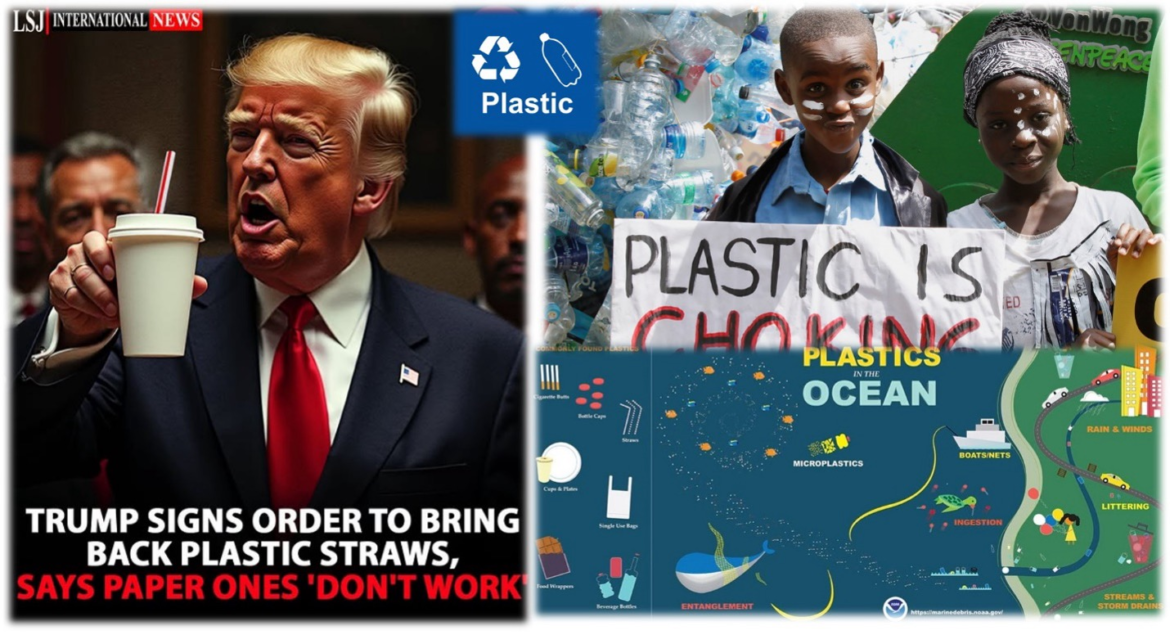Reflecting growing challenges facing the proposed international treaty to end plastic pollution, U.S. President Donald Trump (February 2025), repelled the Biden administration’s policies aimed at phasing out federal purchases of plastic products by 2027 and eliminating their use entirely in federal operations by 2035.
This indicates that the future direction of U.S. policy on plastic pollution—one of the leading causes of environmental degradation, ocean contamination, harm to wildlife, and human health—does not align with the historic resolution adopted by the United Nations Environment Assembly (UNEA) in Nairobi, Kenya, in March 2022, which launched negotiations for a binding international treaty to end plastic pollution. This misalignment is expected to hinder progress in the treaty negotiations, especially given:
- Only 9% of the 460 million tons of plastic produced annually is recycled, while approximately 6 million tons leak into the oceans each year.
- The inability to reach a comprehensive and effective agreement despite holding five sessions of the Intergovernmental Negotiating Committee (INC) between November 2022 and December 2024, and the development of a non-paper treaty draft for negotiation.
- The failure of the negotiations to reach any agreement beyond adopting a “lifecycle approach” to end plastic pollution during the first part of the fifth INC session (INC-5.1), held in Busan, South Korea (November 25 – December 1, 2024). Key points of contention include:
- The need for strict limits on plastic production to address the root causes of pollution (as proposed by the EU and Mexico).
- Concerns over the potential economic consequences of such restrictions (as raised by China, Saudi Arabia, and India).
- The absence of a clear financing mechanism to help developing countries implement effective waste management and recycling systems.
Given the widening gap between countries economically reliant on plastic production and those advocating for stricter environmental regulations, the second part of the fifth INC session (INC-5.2), scheduled for August 2025 in Geneva, Switzerland, is likely to face serious difficulties in achieving a balance between economic interests and environmental concerns—putting the success of the treaty negotiations at significant risk.


